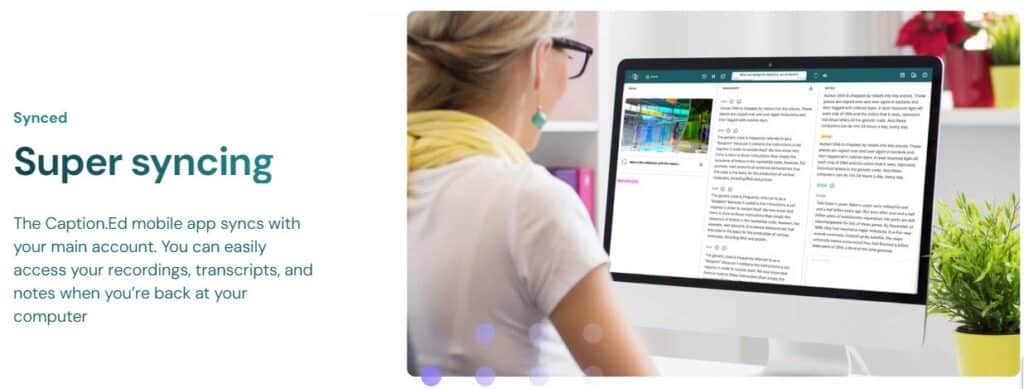Workplace needs assessments offer an important way to maximise employees’ potential at work. By unlocking recommendations for needed tools, equipment, and technology, they provide staff with equity to carry out their roles.
Assessments are also a key way to boost workplace engagement. And this is important for leaders to consider since the UK now ranks 33rd for employee engagement across Europe.
Workplace leaders who want to increase levels of workplace accessibility, inclusion, and engagement may benefit from reviewing the scenarios in this post. Outlining five situations where workplace needs assessments apply, this post aims to inspire you to know when to make reasonable adjustments for staff who need them.
What are Workplace Needs Assessments?
A workplace needs assessment is an impartial assessment that identifies any reasonable adjustments that an employer may need to make for staff with disabilities or neurodivergence. It is a legal requirement for all employers and falls under the Equality Act 2010.
An impartial and experienced workplace needs assessor will carry out the assessment. They start by reviewing an employee’s workstation, equipment, furniture, and any areas they need help with. Workplace needs assessments last around two hours and cost somewhere between £75 to £500.
Sometime after their assessment, they send a checklist report featuring their recommendations and guidance on the appropriate adjustments to make.
Situations Where You May Need to Carry out Workplace Needs Assessments
There can be many different situations where it’s appropriate to conduct workplace needs assessments. But here are five of the most important ones to consider.
1. Making Reasonable Adjustments for Neurodivergent Staff
It’s a legal requirement to make reasonable adjustments for staff with disclosed or undisclosed neurodivergent conditions. Not only that, it also helps them carry out their work and duties to their fullest abilities.
It’s incumbent on employers to take responsibility for arranging impartial workplace needs assessments. Once they do, they’ll receive a list of recommended adjustments to make, which may include some of the following:
- Breaks: Neurodivergent employees may need extra time for short break periods than others. For instance, people with dyslexia often need time to listen to information and digest it.
- Quiet spaces: Neurodivergent staff may feel overwhelmed with too many distractions or sensory experiences. So it may appear on a list of reasonable adjustments to offer quiet spaces for respite, away from distractions.
- Noise reduction: A Workplace Needs Assessment may recommend noise-canceling headphones for staff who struggle with background noises. Headphones are also useful to improve concentration levels.
- Assistive technology: Assessors may make recommendations for Assistive Technology that help neurodivergent staff in different ways. And Caption.Ed is often recommended as a supportive desktop and mobile app for reducing anxiety and improving concentration.


2. Creating a Company Scheme for All Staff
While our tech tools aim to support neurodivergent staff, they also have a significant impact on other individuals. Making reasonable adjustments is something employers need to do for all their employees. And some organisations have responded to this by creating their own bespoke schemes.
A good example is the Civil Service. They recognised the need to remove any association with disability by creating their own branded scheme that they refer to as ‘Workplace adjustments’. In doing so, their aim is to remove barriers for all employees and create an Inclusive environment that gives support to all.
“In the Civil Service, we use the term ‘workplace adjustments’ in communications and HR guidance and products, rather than ‘reasonable adjustments.’ The Civil Service aims to support employees who may have a barrier at work regardless of whether they have a disability or health condition.“Chris Wilson, Head of the Civil Service Workplace Adjustment Service, Cabinet Office
Chris Wilson, Head of the Civil Service Workplace Adjustment Service, Cabinet Office
3. Finding Condition-Specific Tools for Neurodivergent Staff
Neurodivergence covers a broad set of differences ranging from ASD to dyslexia and mental health conditions. To be effective, workplace needs assessments should be condition-specific. A professional workplace needs assessors can include a cognitive diagnostic assessment of a particular condition to help find the best solutions.
So, while you should make reasonable adjustments for all staff, employers may need a more specialist approach to support neurodivergent staff. And doing so can ensure staff receive the most appropriate supportive tools.
4. Arranging Support for Mental Health Conditions
Chronic and acute mental health problems like depression and anxiety are also neurodivergent conditions. And while many firms may have wellbeing at work policies that allow for time off and work/life balance, Caption.Ed can also support staff who may need help.
For instance, depression can sometimes lead to a lack of concentration and focus. And stress can lead to elevated levels of cortisol and adrenaline which increase the risk for brain fog. In both situations, Caption.Ed can improve concentration by covering note-taking and communication responsibilities. And with a library of stored recordings and transcripts at hand, employees can feel more calm and assured that they won’t miss key information or be misunderstood.
5. Alterations for Staff with Physical Disabilities
Of course, staff with physical disabilities must receive workplace needs assessments and appropriate tools or equipment to do their jobs. According to disability charity Scope, you can get reasonable adjustments if you’re disabled or become disabled while employed.
Workplace Needs Assessments can Recommend Caption.Ed and TalkType
Caption.Ed and TalkType are the UK’s leading assistive technology tools for overcoming workplace barriers. When given the chance to record meetings to recall later, people with physical disabilities and neurodivergent conditions can find better focus, concentration, and reduce their anxiety levels.
By using state-of-the-art technology to support captioning, transcriptions, and writing texts, our tools are a regular feature on many workplace needs assessors list of recommendations.
Discover how Caption.Ed and TalkType could help you and chat with our team.


